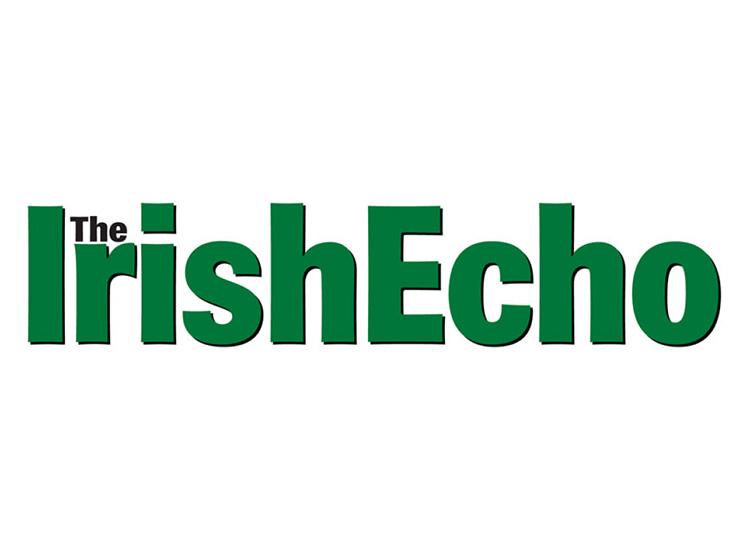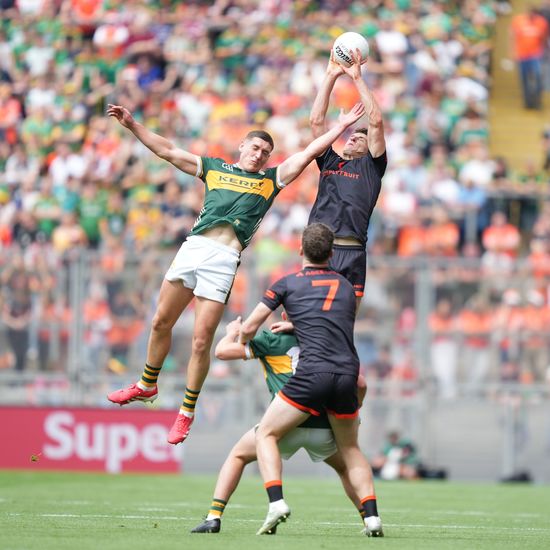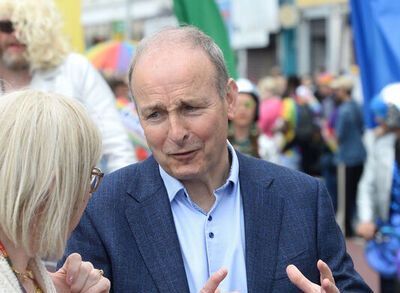Simon Coveney talking up the merits of Irish beef
By Irish Echo Staff
Ireland and the UK could be heading for a trade war over the border backstop.
And Irish beef would be at the center of it.
Britain has upped the ante in the battle over the Brexit backstop by threatening to favor Brazilian beef over Irish using a system of tariffs and quotas, the Irish Independent reported.
The British plan, which echoes tactics used against the government of Eamon de Valera during the Anglo-Irish trade war of the 1930s, aims to allow beef-producing countries like Brazil to dodge the brunt of the new import taxes, or tariffs, after Brexit.
It will mean a huge quantity of low-priced Brazilian beef being pushed into the UK market, with quality Irish beef being priced out, the report stated.
And it continued: “UK Food and Rural Affairs Secretary Michael Gove is leading the charge to protect British farmers, this week warning of onerous tariffs on produce flowing into the UK. But in a further escalation, it is understood Mr. Gove is planning ‘tariff rate quotas’ to allow certain amounts of produce into the UK without tariffs.
“This would apply to products like poultry and beef – and would benefit massive producers such as Brazil at Ireland’s expense. Brazil produces huge amounts of beef cheaply so would be able to flood the UK market.”
Brazil is currently subject to World Trade Organization tariffs when it sends beef to Britain, while Ireland is exempt as part of the EU single market, giving Irish farmers here a €3 advantage per kilo of beef.
That advantage will be erased with the UK leaving the EU’s single market.
Reported the Independent: “It is believed that Mr. Gove is using the threat of tariffs on Irish farmers as leverage as the UK seeks a favorable deal. He hopes that the sizeable rural lobby in Ireland will exert pressure on the government here to yield on the issue of the backstop.
“The threat of harsh trade conditions has chilling echoes of the bitter Anglo-Irish trade war of the 1930s which saw twenty percent tax duties on some imports including cattle.
“In the case of a no-deal Brexit, the UK will fall back on WTO trading rules. When it comes to agri-food, the WTO tariffs that would have to be imposed on Irish goods to the UK are severe, especially for the beef sector.
“It would mean that Irish beef being exported to the UK would be subject to tariffs in the region of seventy percent. Add in trade costs, veterinary checks and paperwork, and industry figures suggest the real cost could be in the region of eight four percent.
“That additional price will be added onto the product on the shelf, in effect pricing Irish beef out of the market.”
Other Irish agri-food exports to Britain would face similar peril.
Gove's latest proposals will propose a massive tariff-free quota for beef.
“This will ‘level the playing field’ meaning that Irish producers would have to massively reduce beef prices to compete with the likes of Brazil - with huge economic consequences,” the report added.
Ireland's agri-food industry is responsible for 128,000 farms and accounts for more than twelve percent of Irish exports - worth €12 billion a year.
And Ireland is hugely reliant on the UK market and more exposed than any other EU country to the impact of Brexit.
As well as beef, other Irish agri-food exports to Britain would face similar tariff peril.
In the face of the UK tariff threat, Tánaiste and Minister for Foreign Affairs and Trade, Simon Coveney, is looking to the EU for aid and comfort.
He said the EU Commission would bail out Ireland’s beef industry if a no-deal Brexit sparks an agri-food trade war.
Coveney, according to the Independent, said the Commission has “made it very clear” that they will “support and protect” the Irish agriculture industry if Britain crashes out of the EU without a trade deal.
He said the Commission “recognizes the vulnerability” of Ireland’s beef sector in the event of a disorderly Brexit.
The United States is also a market for Irish beef after the U.S. Department of Agriculture a few years ago cleared the way for imported Irish beef. But the level of U.S. demand pales in the face of its UK equivalent.









